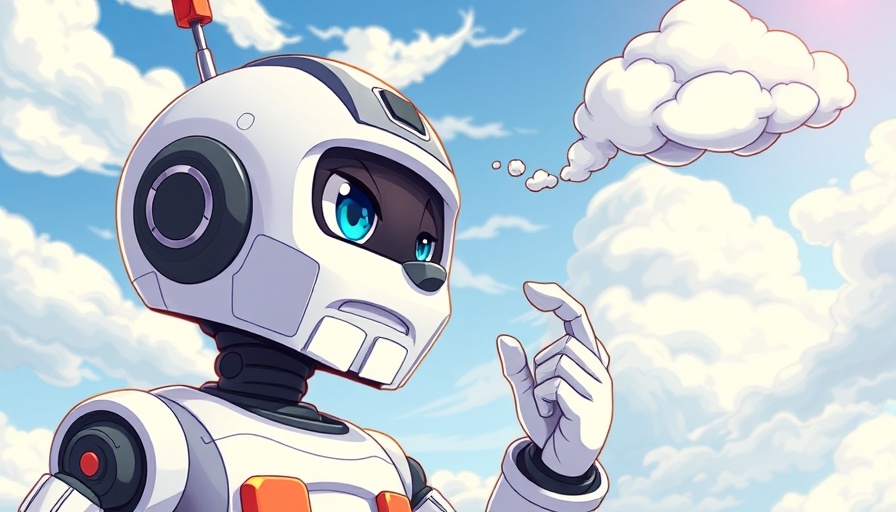
Anthropic Launches Claude 3.7 Sonnet: A Game Changer in AI
Anthropic has made waves in the artificial intelligence sector with the introduction of Claude 3.7 Sonnet, a model that challenges both OpenAI and DeepSeek. As businesses increasingly look for efficient AI solutions, the new capabilities of Claude 3.7 empower users with unprecedented control over AI's reasoning time.
The Philosophy Behind The Technology
Unlike existing models that traditionally separate quick responses from deep analytical thinking, Claude 3.7 integrates these functions into a unified system. This reflects a core belief at Anthropic: reasoning should not be an added feature but an integrated capability. Dianne Penn, Anthropic's head of product management for research, emphasizes that the model adapts based on task complexity. For example, while a simple question may elicit an immediate answer, more intricate tasks—like organizing a two-week gluten-free trip to Italy—warrant a greater investment in thinking time.
Advantages of the Hybrid Reasoning Model
The hybrid model of Claude 3.7 Sonnet offers a switch between "standard" and "extended thinking" modes, allowing it to address both straightforward queries and complicated tasks seamlessly. This flexibility can potentially reduce the need for multiple AI systems in businesses, ultimately saving on costs and simplifying operations.
Competitive Landscape: A Shift in Dynamics
With DeepSeek previously shaking the industry by delivering an AI model rivaling U.S. capabilities at a fraction of the cost, this moment couldn't be more crucial. The introduction of Claude 3.7 Sonnet represents a strategic response to these market shifts. Recent benchmark tests show significant improvements over Claude 3.5, notably achieving 78.2% accuracy in advanced reasoning tasks and excelling at task-oriented modules such as retail-focused tool use.
Future Implications for Businesses
Businesses investing in AI technologies face pivotal decisions. As models like Claude 3.7 Sonnet and its coding companion, Claude Code, redefine what's possible within AI, the question arises: how can enterprises best leverage these advancements? The ability to handle both quick queries and in-depth analyses within a single model presents businesses with a roadmap for integrating AI into their workflows effectively. This could mark a transition from merely automating tasks to fostering genuine collaboration between humans and machines.
What This Means for the AI Industry
As AI technology continues to evolve, Anthropic's latest offering illustrates the intense competition inherent in this space. With AI systems becoming increasingly versatile and capable, companies not only need to adapt their strategies but also remain vigilant about new entrants in the market that challenge existing norms.
In conclusion, as Claude 3.7 Sonnet paves the way for a new era of AI, both businesses and investors should keep a keen eye on these developments. The future of AI lies in its ability to reason effectively and adapt to complex challenges—not just quick computation.
 Add Row
Add Row  Add
Add 


Write A Comment